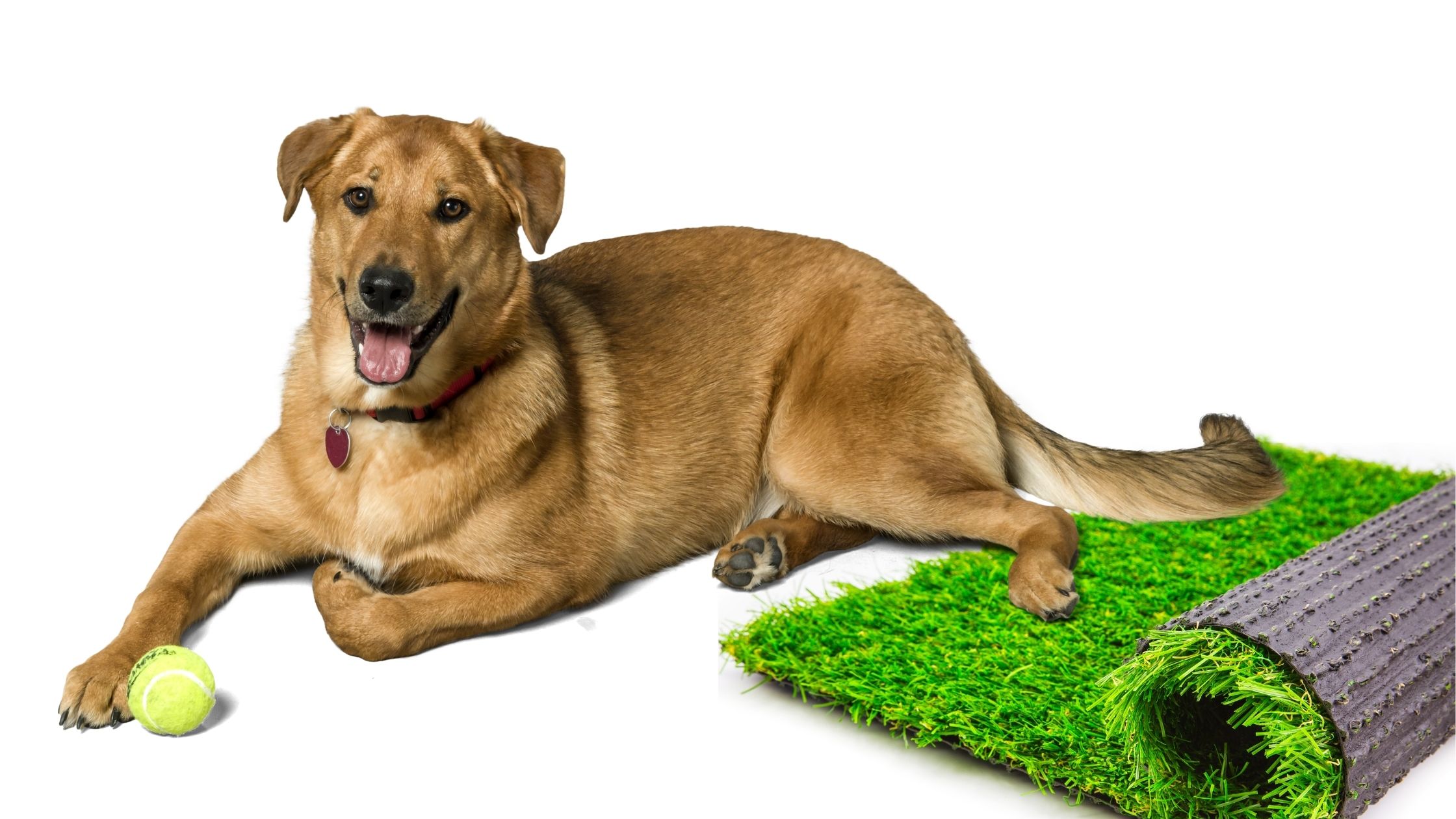Last Updated on 11/17/2021 by Veronica Jones
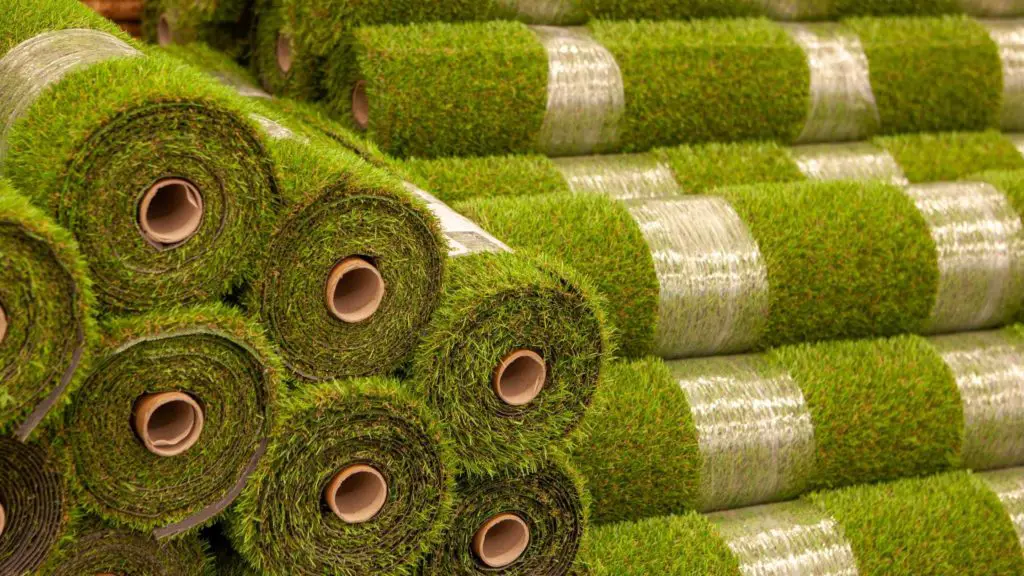
Like humans, dogs can suffer with allergies to certain foods, dust and grass pollen. But can dogs be allergic to artificial grass?
We discuss whether dogs can be allergic to artificial grass, the pros and the myths associated with synthetic grass for canines.
Grass Allergies in Dogs
Canines love rolling about in grass but many pet owners are not aware that it could be causing your dog harm. Aside from picking up fleas and ticks, grass pollen is a common allergen in dogs that can cause your pooch some discomfort.
Symptoms of grass allergies in dogs
Certain breeds of dogs such as Golden Retrievers. Pit Bulls and English Cocker Spaniels are more vulnerable to an allergic reaction to grass but any dog can develop an allergy to pollen.
Check your furry friend for signs of the following common symptoms:
- Runny nose.
- Sneezing.
- Red, sore and watery eyes.
- Excessive licking or scratching.
- Hives.
- Inflamed skin.
- Tired or lethargic, especially when the pollen count is high.
The best way to treat dog allergies is to limit their exposure and wash their feet after coming into contact with grass. Contact your veterinarian to discuss your concerns before treating your dog for a grass allergy. Omega-3 fatty acid supplements can also help to relieve symptoms. Also consider replacing your turf with artificial grass.
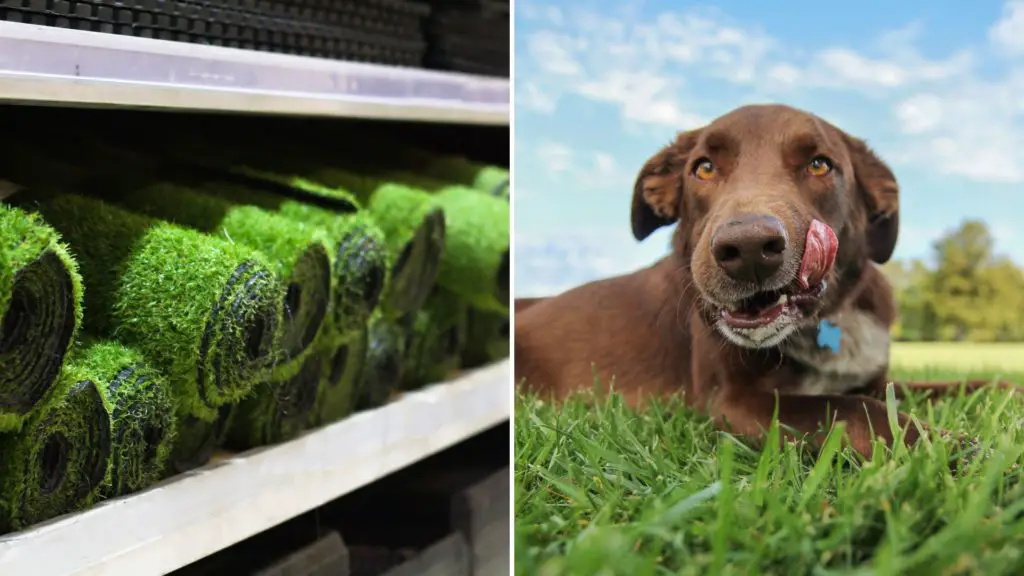
Can Dogs be Allergic to Artificial Grass?
Synthetic grass is hypoallergenic so you won’t need to worry about your dog suffering from grass pollen allergies and symptoms, plus your four-legged friend will be much happier too.
Installing fake grass is a safe and good alternative to live grass. Unlike natural grass, fake turf does not make a good home for insects or contain anything that could cause a dog’s skin to become red and inflamed.
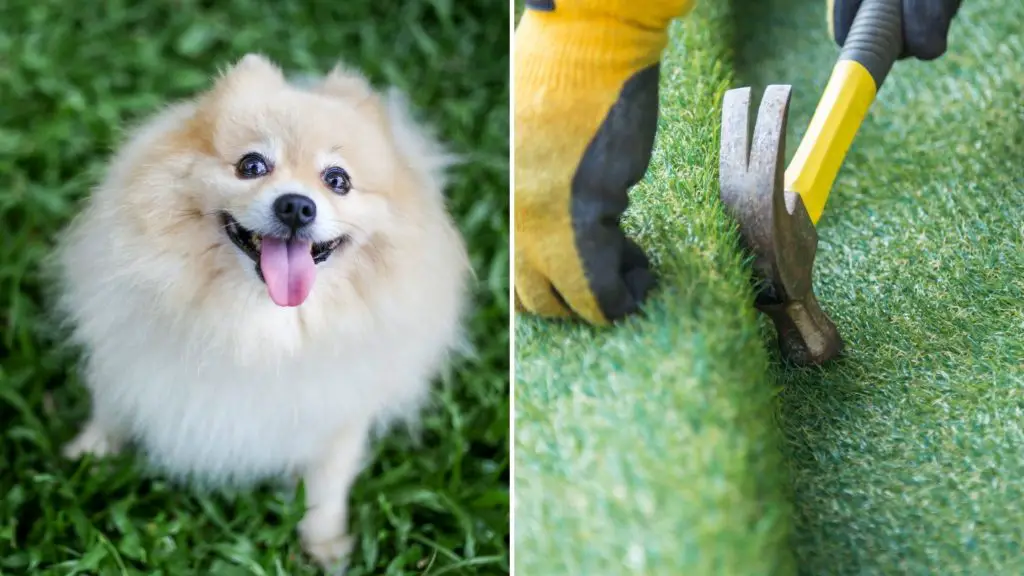
Benefits of Artificial Grass for Dogs
Here are five great reasons to get pet artificial grass for your dog.
- No more harmful chemicals: pesticides, weed killers and fertilizers may keep natural lawns looking healthy, but they can be extremely harmful to dogs who eat it. Artificial grass doesn’t need chemicals so you don’t have to worry about your pooch licking or eating grass.
- No more fleas or ticks because they can’t survive or breed on astroturf, which means you don’t need to use any insecticides in your backyard to get rid of them.
- Artificial grass is so advanced that your pet won’t even know the difference between real and fake grass. Choose a good backing for your fake grass to ensure water can drain away properly.
- Your pooch can play and run around without causing any damage to your entire lawn. Plus, there will be no more muddy paws in the house. Symptoms of grass allergies will be a thing of the past and you can go back to having your windows open without the risk of pollen coming inside or your dog having any allergic reactions.
- Artificial grass is low maintenance and easy to clean. There will be no more stains and discoloration when your pooch goes to the toilet. You can simply rinse the area down with soapy water to keep it looking new.
The Myths about Artificial Grass
- During hot weather, synthetic grass can heat up quickly. Whilst this is true for some low-quality fake grasses, the latest artificial grass has Feelgood technology that prevents grass from becoming too hot and hurting your pooch’s paws. Investing in reputable, high-quality synthetic grass will ensure its suitable for both your family and pets.
- Dog urine can make artificial grass smell bad. Fake grass that is laid properly and has the correct base will ensure that dog urine can drain away without leaving any nasty or lingering smells.
- Synthetic grass contains lead and other dangerous toxins. Artificial grass must be manufactured to strict standards and regulations in the EU, which means that you can be confident that it’s completely safe for you, your family and pets. If you’re still worried about how the fake grass has been made, ask the manufacturer whether their product has been tested and verified as free from harmful toxins.
- Artificial grass is expensive. Whilst there is a cost involved in replacing your grass with artificial turf, it can pay for itself in the long run. Grass seed, fertilizers and pesticides all cost money. Add on to that the cost of using your lawnmower, increased water bill during the summer months and other gardening equipment, you’ll be surprised at how much caring for real grass costs.
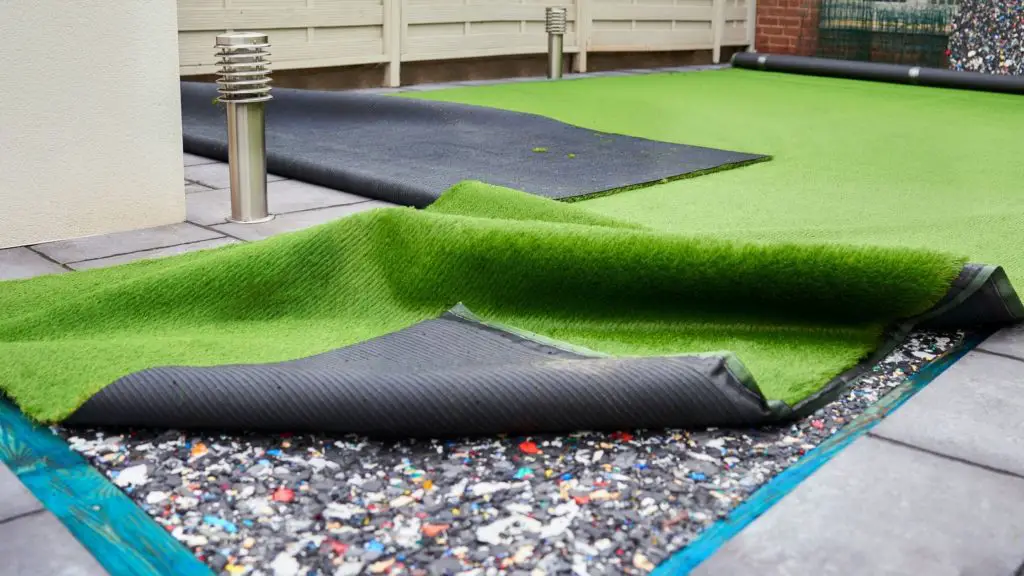
Reduce Grass Allergies for Dogs with Artificial Turf
If your dog has grass allergies or keeps getting infested by ticks and fleas, investing in artificial grass could be the perfect solution for both you and your furry friend.
Regardless of the weather, you and your pooch can enjoy fake grass all year round, with no nasty allergy symptoms from grass pollen.
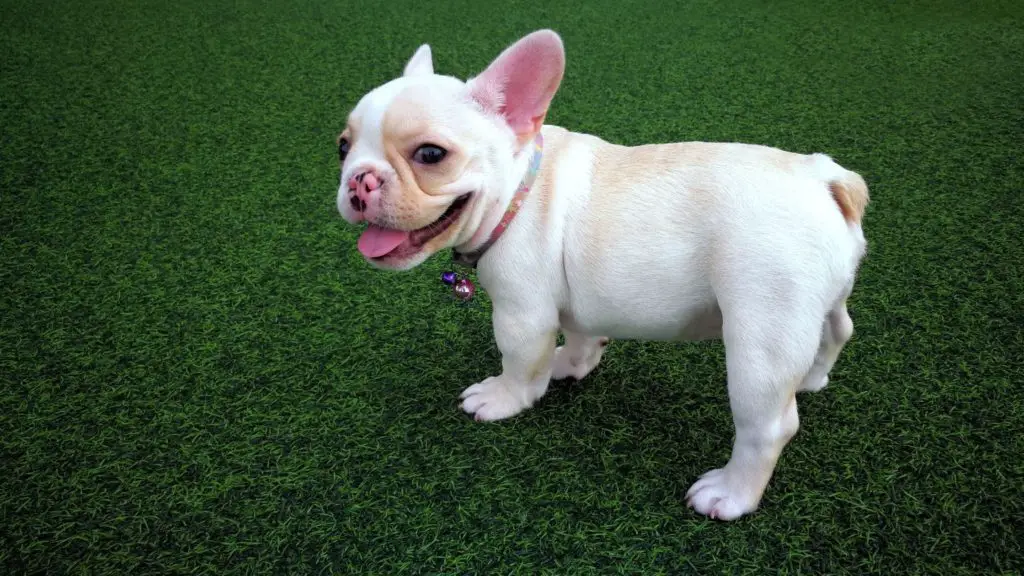
Looking for More Great Articles About Dogs?
- Can Dogs Eat Cooked Cow Tongue? Everything You Need to Know
- Why Do Dogs Eat Grass? Is it OK for Dogs to Eat Grass?
- Dog Food Tool Start
- Can Dogs Eat Jasmine Rice: Why is Jasmine Rice OK for Dogs?
Reference list
- VCA Hospitals “allergies in dogs”, https://vcahospitals.com/know-your-pet/allergy-general-in-dogs, Accessed 30th August 2021
- PETMD “dog allergies”, https://www.petmd.com/dog/conditions/skin/can-dogs-be-allergic-grass, Accessed 30th August 2021
- PDSA “dogs and pollen allergies”, https://www.pdsa.org.uk/taking-care-of-your-pet/looking-after-your-pet/all-pets/pets-and-pollen, Accessed 30th August 2021
- RSPCA “dogs and fleas”, https://www.rspca.org.uk/adviceandwelfare/pets/general/fleas, Accessed 30th August 2021
- Artificial grass online “is artificial grass safe for dogs”, https://www.artificialgrassonline.com.au/blog/pros-and-cons-of-artificial-grass-for-dogs/, Accessed 30th August 2021

